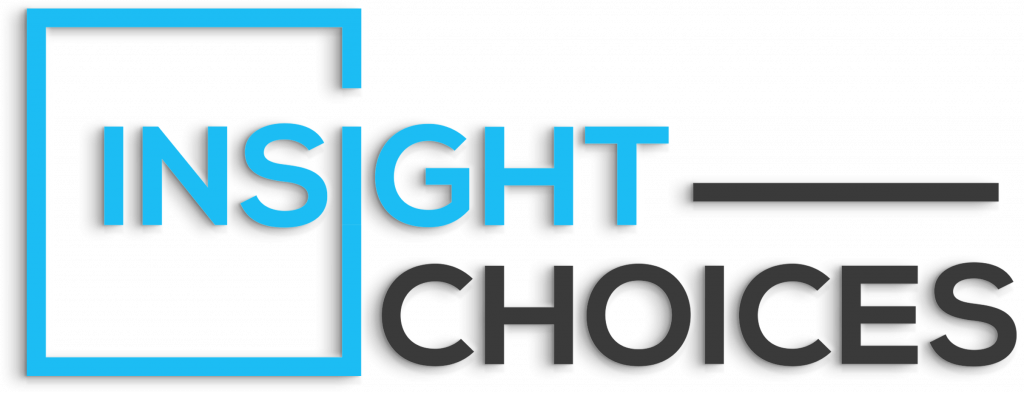Introduction: Mental Health Deserves More Than Just a Month
As May draws to a close, we reflect on voices raised, stories shared, and support offered during Mental Health Awareness Month. However, mental health does not follow the calendar – it follows us.The conversation must continue, because the need continues. Mental Health is not a moment – it’s a movement, and movements require nurturing, commitment, and sustained attention.
At Insight Choices, we view May not as a conclusion but as a launchpad for year-round advocacy. Awareness is not a destination, it’s a starting point. It is a spark that ignites deeper conversations, enduring education and long-term change. We must take that spark and keep it alive in every month that follows.
Mental Health Month is a time to highlight the significance of mental wellness. But the discussion doesn’t end here. So we ask: What comes next? How do we keep showing up, speaking up, and creating lasting change, not just for a month, but for a lifetime.
The Power of Awareness: Changing the Conversation
The energy and momentum built in May must evolve into something long-lasting. We can no longer treat mental health awareness as a brief campaign. Real change requires:
- Education: Understanding the symptoms of anxiety, depression, trauma, and more.
- Normalizing Conversations: Keep talking – at work, at home, in schools, and in community spaces. Let emotional check-ins be as regular as casual greetings.
- Creating Safe Spaces: Every environment can become a space where mental health is acknowledged, valued, and supported.
- Consistently Advocating: Mental health isn’t seasonal. Continue pushing for laws and policies that expand access to care, improve insurance coverage, and ensure parity for mental health treatment.
Insight Choices is committed to this long-term vision. Our mission doesn’t stop when May ends. We work year-round to provide inclusive therapy, medication management, support and education tailored to the unique needs of the communities we serve.
Advocacy in Action: What You Can Do
You dont need to wait for the next awareness campaign to make a real impact. Here are meaningful ways to continue the work throughout the year:
1. Share Your Story
Whether your mental health journey has been long and heartbreaking or quiet and slow, your experience is important. And it might be exactly what someone else requires to hear.
Your voice can break someone else’s silence.
2. Join Online Movements
The digital world is a powerful place for connection. Use it to your advantage. During May (and beyond), participate in campaigns by posting with hashtags like:
- #MentalHealthAwarenessMonth
- #BreakTheStigma
- #YouAreNotAlone
These posts might seem small, but they contribute to a culture of openness.
3. Attend Events
You must look for:
- Workshops and mental wellness panels
- Virtual summits or local meetups
- Community forums or mindfulness sessions
These events create space for learning, sharing, and growing.
4. Talk About It: Everywhere
Mental health should be discussed around the dinner table as easily as in therapy. Start conversations in:
- Workplaces: Normalize checking in on emotional well-being.
- Schools: Encourage students to talk about stress, anxiety, or bullying.
- Friend groups: Ask real questions like, “How are you feeling today?”
5. Educate Yourself and Others
Take time to understand:
- The difference between sadness and clinical depression
- The signs of burnout or panic attacks
- How trauma affects the brain
Knowledge builds empathy, and empathy fuels action.
The Role of Insight Choices in Mental Health Awareness
Whether it’s May or any other time of the year, Insight Choices stands ready to walk alongside you on your mental health journey. We offer:
- Affordable, stigma-free therapy for individuals, couples, and families
- Psychiatry and medication management with a personalized approach
- Transcranial Magnetic Stimulation (TMS) for patients who tried different medications and are seeking a new direction in their treatment
- Culturally sensitive care that honors your background and identity
- Ongoing partnerships with schools, businesses, and organizations to build a more healthy society.
Mental Health in Communities
Mental health doesn’t happen in a vacuum. It’s shaped by where we live, learn, and work. That’s why community involvement is non-negotiable.
When a group invests in mental wellness, you can feel:
- Schools with trained counselors see better student outcomes.
- Workplaces that offer therapy benefits retain happier, healthier employees.
- Cities that support crisis hotlines reduce emergency response calls.
We’ve seen it firsthand: towns that once ignored mental health now organize wellness fairs and peer support networks. Change is possible when communities believe in it.
How can you bring this to your corner of the world?
- Partner with your local school board to introduce mental health education.
- Advocate for employee assistance programs in your company.
- Volunteer with mental health-focused nonprofits.
- Create safe spaces. Book clubs, coffee meetups, and walking groups. Where honest conversation thrives.
The solutions don’t need to be perfect. They just need to begin.
Moving Toward a Mentally Healthy Future
Picture a world where emotional pain is treated with the same sincerity as a physical injury. A world where saying, “I’m not okay,” gets you support. Not shame.
It’s not impossible. It starts with values:
- Compassion over judgment
- Curiosity over assumptions
- Openness over silence
We move forward by making mental health part of everyday life. It is not a special topic, not a temporary campaign, but a fundamental part of how we exist together.
Insight Choices will continue to walk alongside individuals on their healing journeys. Not just in May, but always. Our doors, our ears, and our hearts are open.
Because the future we’re building is one where mental health is seen, supported, and celebrated.
Conclusion: Together, We Can Make a Difference
Mental Health Awareness Month May come to an end, but the mission must carry on. The need for understanding and support doesn’t disappear as we flip the calendar. Let’s continue to
- Show up for ourselves and others
- Engage in open, honest conversations
- Prioritize mental health in our daily lives
Don’t wait until someone’s breaking to ask if they’re okay. Be the reason someone finds hope a little sooner.
Let’s replace judgment with curiosity. Fear with compassion. Silence with connection.
If you or someone you love is struggling, contact Insight Choices. We’re here whether you’re looking for support, information, or a place to start. With care. With respect. With open arms.
Let’s keep the conversation going, make space for healing, and stand together—because change begins with us.
Let’s build a world where mental health isn’t a secret, but a shared responsibility.
FAQs
- Is it still okay to reach out for mental health help even if it’s not Mental Health Awareness Month?
Absolutely! Mental health support is needed year-round. If you are struggling, reaching out for help is always the right step, no matter the month.
- What is TMS, and who is it for?
TMS is a non-invasive treatment for depression and other mental health conditions. It’s particularly helpful for individuals who haven’t responded well to medication and prefer a non-pharmaceutical approach.
- What should I do if I or someone I know is struggling with mental health?
Reach out to a mental health professional, call a crisis line, or talk to a trusted friend or family member.
- Can I access therapy if I don’t have a diagnosis?
Yes. Therapy is for anyone looking to improve their emotional well-being. You dont need a formal diagnosis to benefit from seeing a therapist
- What are the long-term benefits of raising awareness about mental health?
Increased access to care, reduced stigma, early intervention, and stronger community support systems.

Dr. Chang is a highly respected psychiatrist with extensive experience serving patients in the greater Los Angeles area. With a distinguished background in psychiatry, he has dedicated his career to advancing mental health care through both clinical practice and academic contributions.

